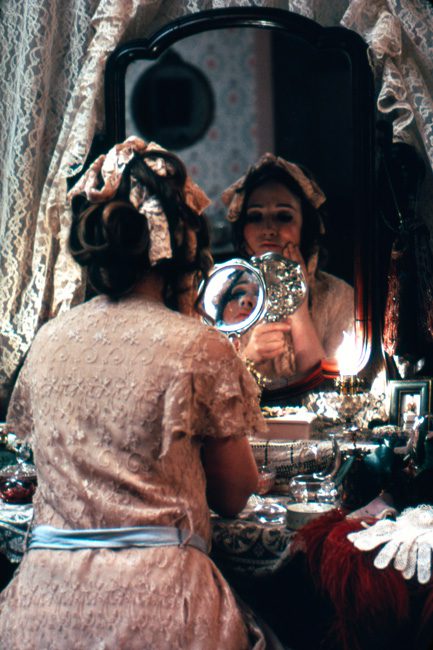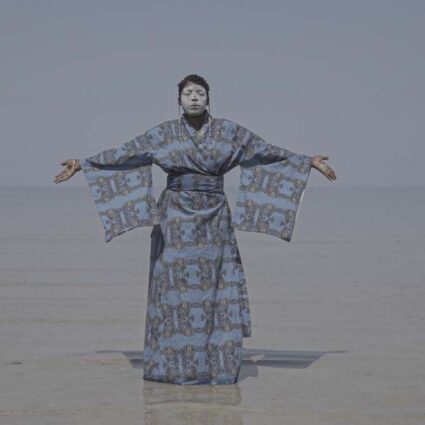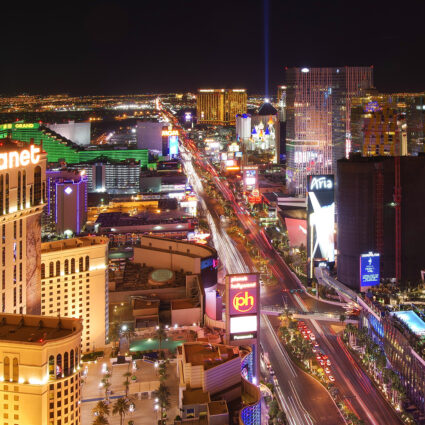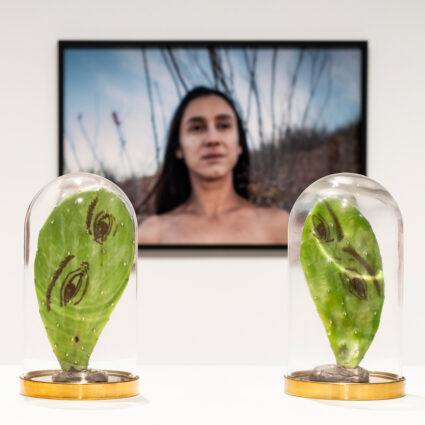Through the Flower in Belen, New Mexico is organizing a new installation with a collective of New Mexico artists to celebrate the fiftieth anniversary of Judy Chicago’s Womanhouse.

This article is part of our Collectivity + Collaboration series, a continuation of the ideas explored in Southwest Contemporary Vol. 5.
Fifty years ago, Judy Chicago, Miriam Schapiro, and a group of their art students from Fresno State College and the California Institute of the Arts opened the feminist art installation and performance space Womanhouse. The collective modified rooms in a derelict Victorian house in the Hollywood Hills into individual works of art centered on women’s domestic experiences.
To celebrate the anniversary of this pioneering work, a collective of New Mexico-based artists and community volunteers, led by nonprofit organization Through the Flower, will reprise the collaborative piece under the slightly altered title Wo/Manhouse. Nineteen artists will transform twelve rooms, five closets, and two bathrooms with installations inside of a renovated, donated house in Belen, New Mexico, located approximately thirty miles south of Albuquerque.
Chicago tells Southwest Contemporary that Wo/Manhouse, which will also include a series of performances throughout its three-month summer run, considers a broad spectrum of gendered experiences of the home.
“Women have always been associated with the house… but the fact is that gender roles, and even our concept of gender, have changed since the ’70s,” says Chicago. “We live in a state that’s Anglo, Mexican, and Native, so we’re going to have multiple points of view across gender, sexuality, ethnicity, and class so that this Wo/Manhouse will have a broader perspective than the first one did.”
Chicago, along with her husband and longtime collaborator Donald Woodman, created another home-based installation project in 2001 with a group of Western Kentucky University undergraduate students. At Home: A Kentucky Project built upon the investigation of domestic experiences of Womanhouse, including male perspectives, Woodman explains.

“The teams were men and women working together,” says Woodman. “There was a tremendous desire to figure out how to collaborate cooperatively. The men had a whole different experience of domesticity and what their experience was in the home, but there were shared ideas and ideals.”
For Wo/Manhouse—scheduled to take place from June 18 through September 25, 2022—Woodman will play similar roles as his work in At Home: A Kentucky Project in both the construction aspects of updating the structural integrity of the donated house and photographing the space throughout the installation process. Chicago as well as practicing artist and teacher Nancy Youdelman, a former student of Chicago’s at Fresno State and a participant in the original 1972 Womanhouse installation, will lead the committee-selected participating artists.
“Nancy uses my pedagogical methods, which are based on [the premise that] every voice is important… making sure everybody is included,” Chicago says.
In addition to the interior installation, there are also plans for an outdoor area that will include performances and workshops. “There are people interested in doing performances, so I will do a performance workshop which I haven’t done for decades,” Chicago says. “We’re planning to restage the Cock and Cunt Play [from 1972] with men.”
The Wo/Manhouse installation at 402 North 5th Street in Belen will be accompanied by an exhibition at Through the Flower Art Space, 107 Becker Avenue in Belen, featuring historical documents and contextual information of the original Womanhouse. Chicago says she also plans to reinstall her original 1972 Menstruation Bathroom work at the Becker Avenue venue.

Historically, Through the Flower, initially founded in 1977, has supported decades of Judy Chicago’s projects, including her groundbreaking work The Dinner Party, which premiered in 1979. One of the earliest pioneers of infusing feminist content in their artmaking practice, Chicago commemorates thirty-nine significant women in history, omitted from the Western canon, in painted and embroidered place settings. Through the Flower continued to support Chicago’s series in subsequent decades, including the Birth Project in the 1980s and the Holocaust Project: From Darkness into Light in the late ‘80s and early ‘90s.
In 1990, the nonprofit moved from California to New Mexico and has since supported educational seminars and other programming throughout the state. Partnering with the University of New Mexico-Valencia campus, Through the Flower established a library of more than 2,100 books, including 1,100 books from Chicago’s original The Dinner Party research library. Other institutional partnerships established by Through the Flower span the country—the organization has gifted Chicago’s works and archival materials to museums like the National Museum of Women in the Arts in Washington D.C. and the Nevada Museum of Art in Reno in exchange for proper care of the materials and availability to the public.
Chicago’s nonprofit established a permanent exhibition space in Belen in 2019 to curate its collection of Chicago and Woodman’s art and present community-focused programming, explains Through the Flower executive director Megan Malcom-Morgan.
“Through the Flower wants to work together with the community, whether it is the local people or the art world, in our mission of education and preservation through exhibitions of Judy Chicago’s work,” she says. “I see what it does not only for our community but for anybody who walks through the door who is impacted by Judy’s work… it’s not just art, it’s art with a purpose, and that is social change.”
A community of local volunteers also supports Through the Flower’s mission and will assist the artists with Wo/Manhouse during the installation process. (A complete list of the nineteen participating artists can be found at the Wo/Manhouse website.) Malcom-Morgan says that volunteers come from various backgrounds, including teaching, civic roles, and workers in the medical field who are inspired to participate in a project that initiates transformation beyond Belen, a town of approximately 7,300 residents.
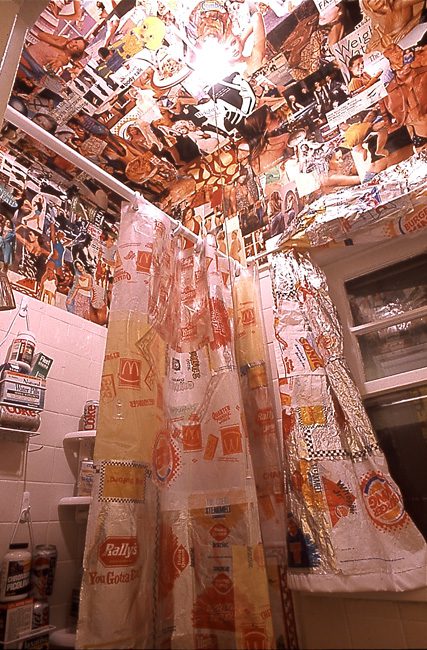
“They all have a strong dedication and belief in Judy’s work and what Judy’s work can do,” says Malcom-Morgan. “They want to be a part of something that betters not only our community, but can also better each other.”
Wo/Manhouse is scheduled to take place from June 18 through September 25, 2022 at 402 North 5th Street in Belen, New Mexico. Through the Flower Art Space, which will display an accompanying exhibition and Menstruation Bathroom, is located at 107 Becker Avenue in Belen.

